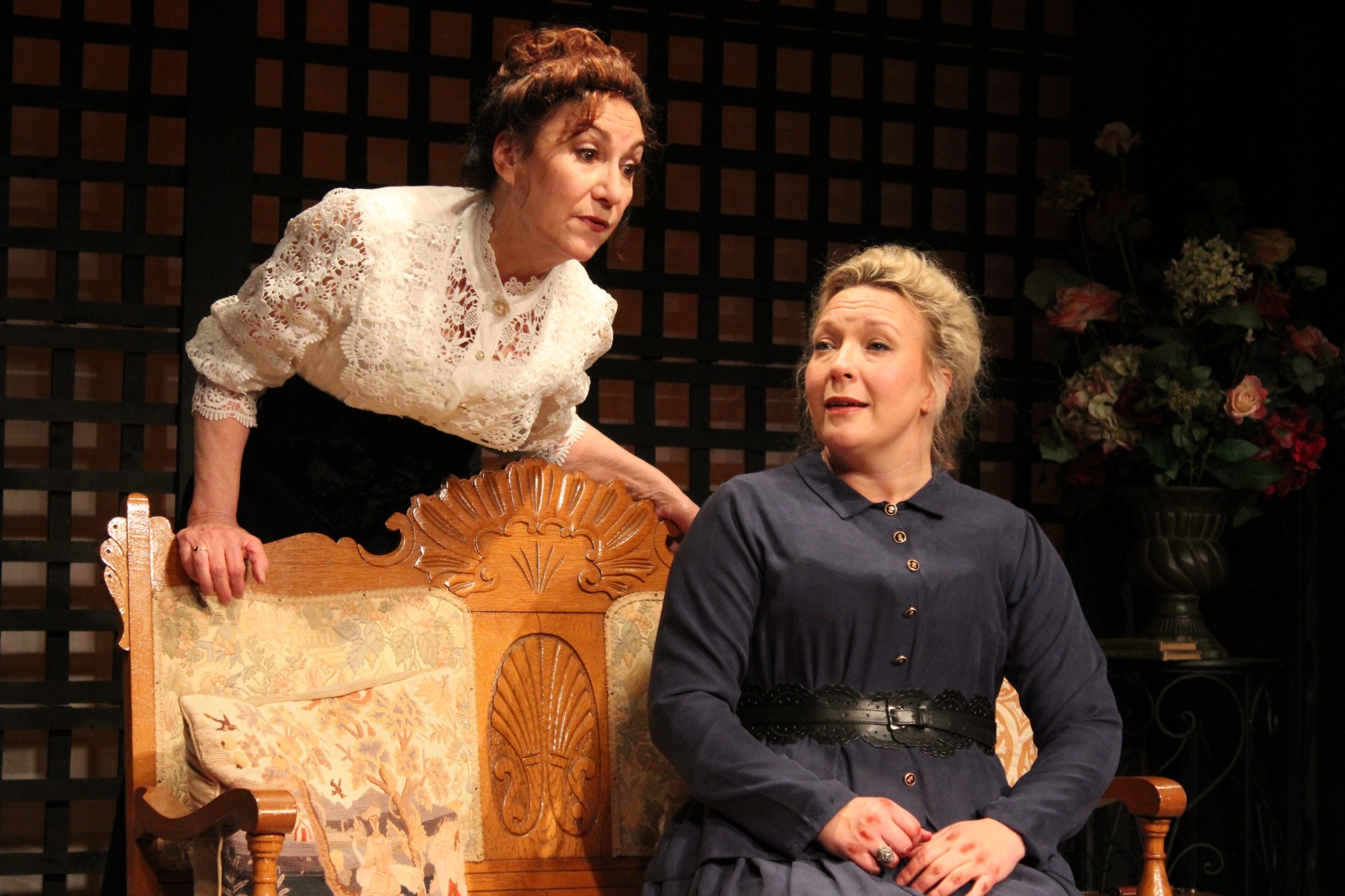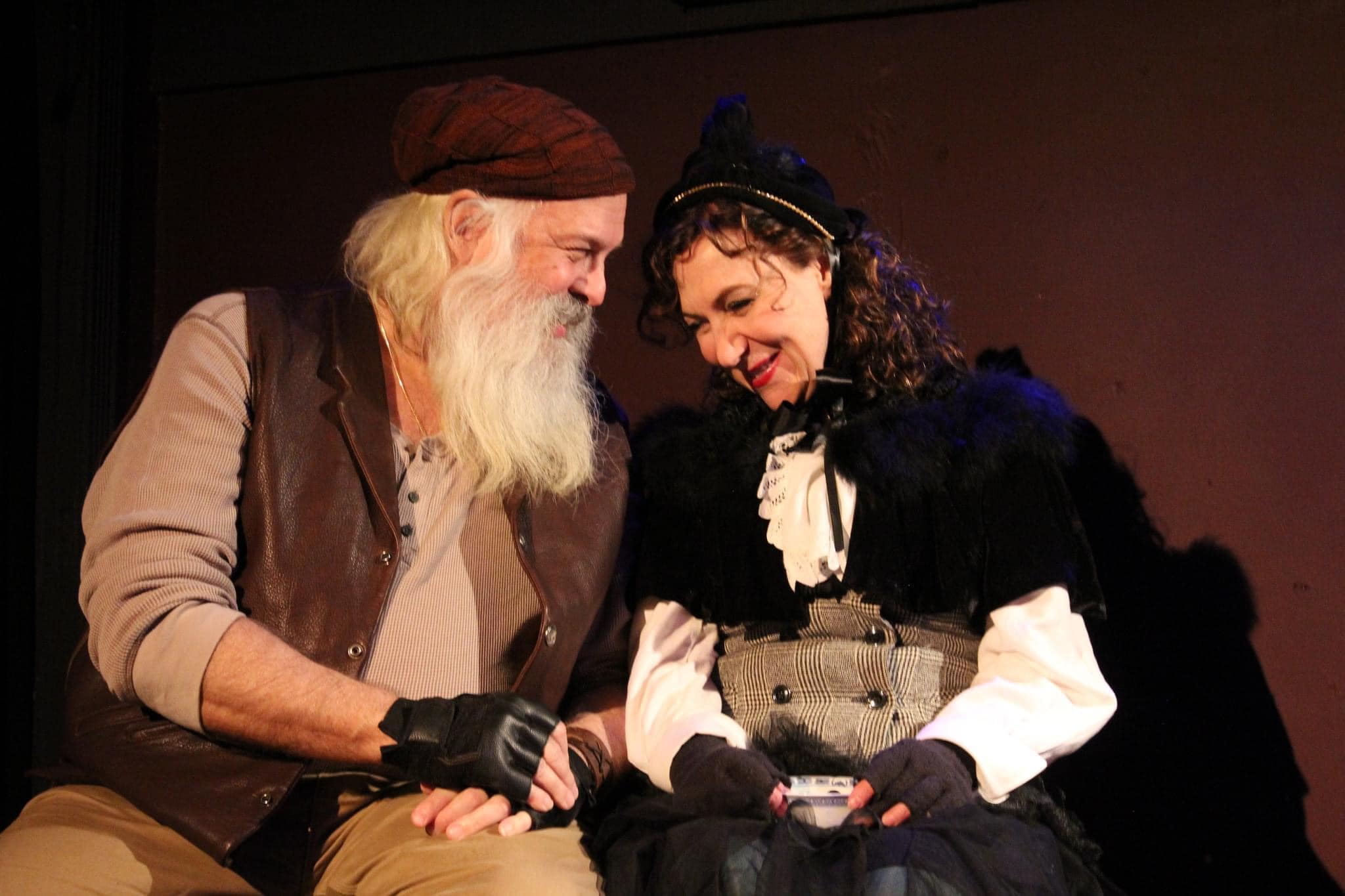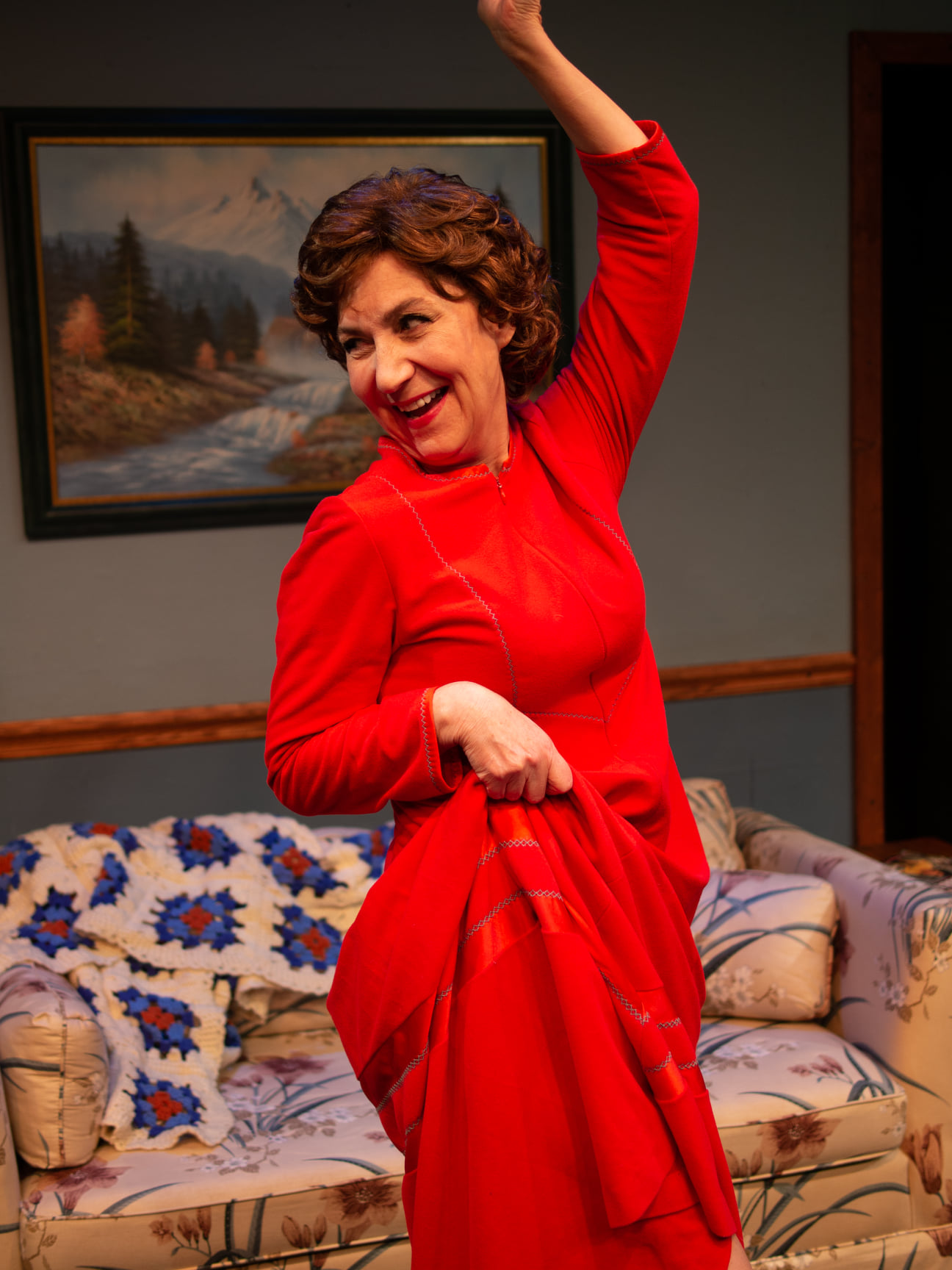We recently connected with Doreen Dawson and have shared our conversation below.
Alright, Doreen thanks for taking the time to share your stories and insights with us today. Can you talk to us about a project that’s meant a lot to you?
I’ve been blessed to have worked on multiple meaningful projects in my years in theatre, and because I tend to throw myself into each production, the most current one always feels the most meaningful. I am presently in the midst of rehearsals for GOOD PEOPLE, by David Lindsay-Abaire, serving as actor and co-producer, for iambe theatre ensemble. I have admired this script for some time, and have been itching to play this role. The initial attraction for me was the sharp, witty, often hilarious dialogue, and the well-drawn, realistic characters who all face their own moral dilemmas. Beneath all the comedy, though, are serious themes regarding the struggles to climb out of poverty, class divide, feeling left behind, and questions of how much luck is involved in a person’s fate. Both a tough and tender play, it resonates with me. I grew up in a blue collar neighborhood, in a family that struggled financially. Although nowhere near as dire as some of these characters, I clearly understood how just one unfortunate incident could leave a family in desperate circumstances. Since the have-nots rarely have a platform to represent themselves, I believe this story demands to be told, especially here in the United States, where the disparity between the classes and the lack of opportunities for the poor still exist.
On a more personal level, the most meaningful project I have had the privilege to work on, was performing in WIT, a pulitzer prize-winning play by Margaret Edson, directed by Lisa Dawn at Wheaton Drama. I played a renowned English professor – infamous among her students for being prickly, uncaring and cold – who is diagnosed with terminal ovarian cancer. Throughout her stint as an experimental chemotherapy patient, she reassess her life and work and, in the end, finds transformative redemption. The process was an intense journey, not only because of the places I had to take myself emotionally as a character facing her many flaws, her suffering and finally her death, but also because I personally witnessed my mother suffer terribly from the same disease which ultimately took her from me. That experience will never leave me. My performance was my tribute to her.


Doreen, love having you share your insights with us. Before we ask you more questions, maybe you can take a moment to introduce yourself to our readers who might have missed our earlier conversations?
The acting bug caught me in my freshman year in high school, and since then, I knew, for the most part, that acting was my calling. Born and raised on the southeast side of Chicago, I moved to the north side upon graduating with a bachelor’s in Theatre from Illinois State University, and immediately began auditioning for mostly storefront theatre companies, for which the Chicago theatre scene was known. I worked in theatre while supporting myself waiting tables and bartending. Years later when my son was born, I decided to put my theatre career on a back burner. Coming back to theatre after eighteen years was rejuvenating, although the revelation that I had now aged out of some of my favorite roles left me frustrated, as roles for women over forty were generally few and far between. This frustration led me to co-found a theatre company with two dear friends from college, and thus, iambe theatre ensemble was born. iambe is the goddess of laughter, something the three of us break into together quite often. Our mission for the company is to present high-quality theatre that focuses on honest, provocative explorations of the human condition, with an emphasis on the under-represented, particularly women of all ages. Our intention is to tell stories from a viewpoint of a population whose voices are rarely heard on stage, giving those who are often marginalized validation, inclusion and empowerment.
When I am not working with iambe or performing on stage, I’m grateful to get to use my acting skills in other outlets that benefit areas where empathy and interpersonal skills are vital. As a standardized patient I work with medical students and professionals in the medical field to establish trust and rapport with patients. As an actor for CIT (Crisis Intervention Training), I work with police officers to learn skills for de-escalating potentially dangerous situations, particularly in dealing with and nurturing more awareness, understanding and empathy for those who suffer from mental illness. I feel so fortunate to be doing such rewarding work on and off stage.


Is there mission driving your creative journey?
The Arts can sometimes be under-valued. Theatre, in particular, can teach people about themselves, send strong messages that they are seen and heard, that they matter and that they are not alone. My main goal, what inspires me as an actor and director of a theatre company, is creating empathy. Putting ourselves in another’s shoes, experiencing different perspectives than our own, sharing stories, and witnessing these creations as an audience, draws us together. I want to perform and produce plays that reach out to people, that change their lives in some way, that make us all understand ourselves and each other better, and that tell us more about what it means to be human.


Can you share a story from your journey that illustrates your resilience?
Running a theatre company is not for the faint of heart! The constant obstacles and challenges involved require no small amount of strength and resilience. Forming a theatre company with three of my dear college friends who share a longstanding passion for theatre seemed like a lark at first. Little did we know what we were getting ourselves into. From choosing the right play in keeping with our mission, applying for grants and organizing fundraisers, hiring artists to direct; act; design lights, sound, set, graphics; stage manage; house manage; costume; handle printing, ticket sales and advertising; finding a dramaturg, technical operator, and builders; taking on many of these positions ourselves and wearing so many hats at once, the three of us have been stretched in more ways than we could have imagined. The stress involved could easily become overwhelming, but I have come to embrace these challenges. And, as we go into planning for our fifth season, I will personally be taking on even more responsibility as we restructure, so I will be searching for more support moving forward. Asking for help has always been difficult for me, but I’m learning to get out of my comfort zone, and I have surprised myself at how much I have accomplished. I have always been one who has difficulty taking no for an answer, which has been beneficial in running a successful company. This experience as a whole has resulted in an unexpected level of personal growth. I feel stronger and more resilient than I have at any other time in my life. Who says you can’t teach an old dog new tricks?
Contact Info:
- Website: https://iambetheatreensemble.com


Image Credits
In order of appearance:
“hippy shot” – Sarah Knauf
Hertha and Marie – Sarah Knauf
black nightgown – Tim Curtis
eating appetizer – Lisa Dawn of Emergence C Photography
Groucho impression – Lisa Dawn of Emergence C Photography
mastiff and moorhen – Sarah Knauf
red robe – Village Theatre Guild house photographer
wheelchair – Wheaton Drama house photographer – Steven Merkel


